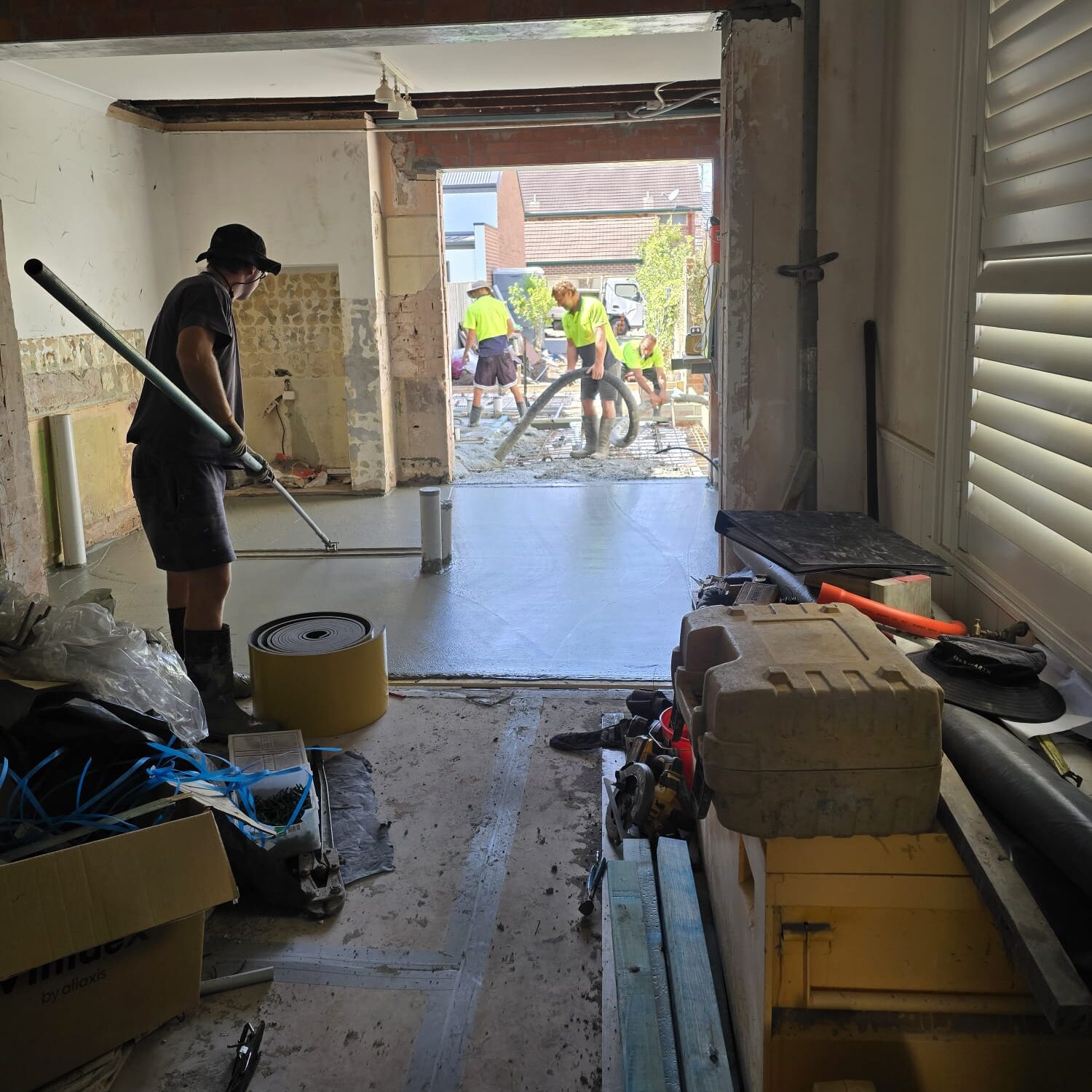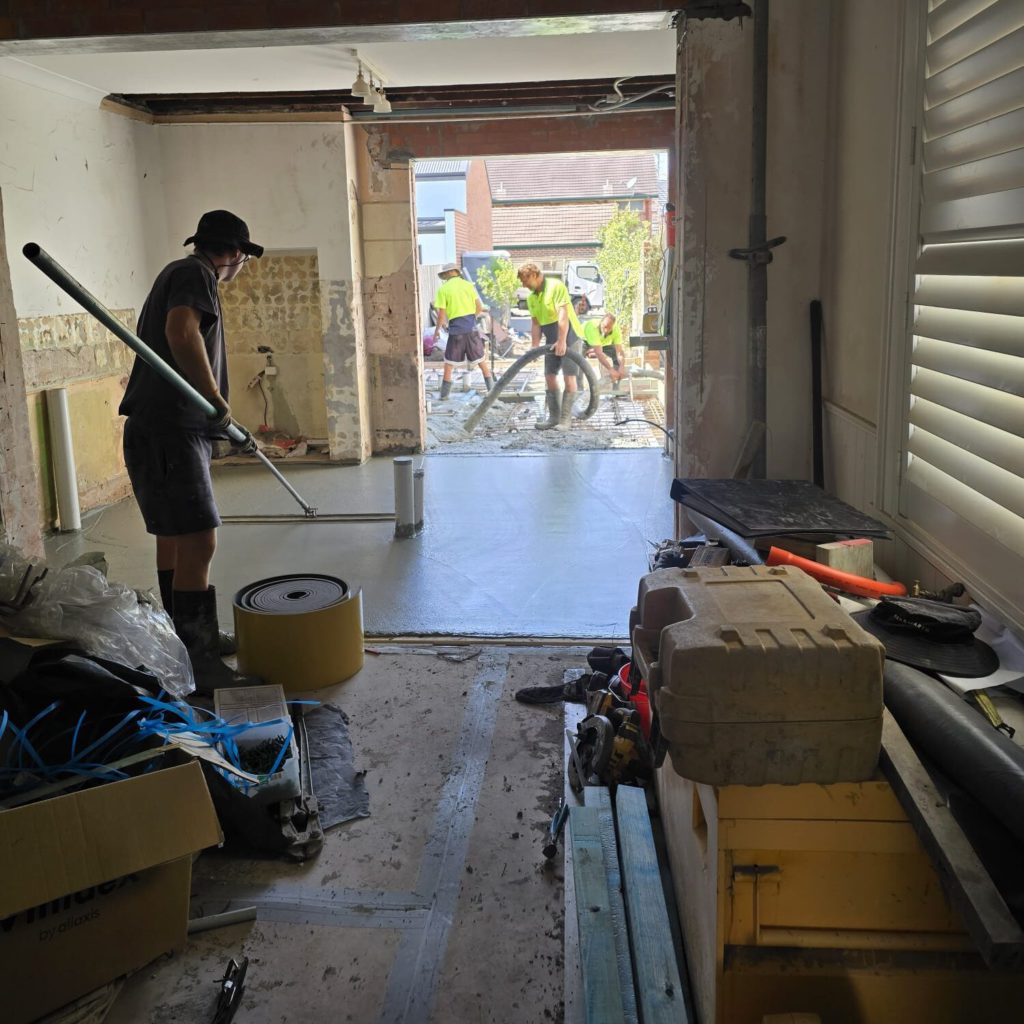Are you gearing up to install a shed slab, construct a new driveway, or lay footings for an extension to your home? If so, you’ve likely come across the term “cement pump.” But what exactly does this term mean, and is it a crucial component for your construction project?
This comprehensive guide offers in-depth insights into the process of hiring a cement pump and illustrates how leveraging this equipment can dramatically improve your next concrete pour, making it faster, cleaner, and more efficient than traditional methods.

Understanding the Difference: Cement Pump vs Concrete Pump Explained
Within the construction industry, it is a prevalent misconception to use the term cement when discussing concrete. Consequently, when individuals reference a cement pump, they are typically referring to a concrete pump. This advanced machine is specifically designed to transport mixed concrete from the delivery truck directly to the precise location required for your project, improving efficiency and accuracy.
Concrete pumps are particularly advantageous in a variety of scenarios, including:
- Delivering concrete to challenging locations, such as behind a house or in narrow spaces
- Eliminating the need for wheelbarrows, thereby significantly reducing strenuous manual labor
- Maintaining a cleaner, safer, and more organized job site
It is important to note that there isn’t a specific machine dedicated solely to pumping cement because cement is merely one ingredient in the overall composition of concrete. Therefore, when preparing to pour a slab or establish footings, what you genuinely require is a concrete pump. For residential projects, a line pump is often the most commonly used option due to its versatility and effectiveness.
Identifying Key Scenarios Where a Cement Pump Is Indispensable
If you find yourself in any of the following situations, it is critical to consider utilizing a cement pump (or, more accurately, a concrete pump) to save significant time, energy, and mess during your project:
- Pouring a shed slab in your backyard
- Replacing an existing driveway that has deteriorated over time
- Installing footings for a deck or a granny flat
- Working in tight access or confined spaces where maneuverability is limited
In these instances, employing a concrete pump can undoubtedly streamline your project timeline and enhance efficiency. By utilizing a pump rather than relying on wheelbarrows or attempting to pour directly from the truck, the concrete can be accurately delivered precisely where it is needed, even if that location is over 30 meters away from the road.
Step-by-Step Guide to Successfully Hiring a Cement Pump (Concrete Pump)
Securing a concrete pump can be a relatively straightforward process, but ensuring you make the right choice can help you avoid unnecessary complications and delays. Here is a simple yet effective guide to assist you in making the right decision:
1. Assess the Specifics of Your Pouring Project
Are you pouring a slab, establishing footings, or creating pathways? Gaining a clear understanding of the specifics of your project will facilitate the selection of the appropriate pump size and configuration tailored precisely to your needs, ensuring efficiency and effectiveness during the pour.
2. Accurately Calculate the Volume of Concrete Needed
Determine the required volume in cubic meters by applying the formula (Length × Width × Depth in meters). If you’re unsure about how to perform these calculations, our knowledgeable team is more than happy to assist you and ensure you account for any potential overrun. Here is a comprehensive guide on how to calculate the amount of concrete you will need for your project.
3. Evaluate Access Points for Concrete Delivery
Can we effectively reach the site with a hose line? Is there sufficient space available for a concrete truck to maneuver? It is crucial to communicate any access limitations so we can plan effectively, ensuring smooth operations and avoiding delays during the concrete delivery process.
4. Schedule the Pump Along with Concrete Supply and Labor Services
At Hunter Concrete Pump Hire, we offer comprehensive support, which includes coordinating the concrete supply, labor, and the pump — all bundled into one seamless package, enhancing your overall project experience and efficiency.
Your Local Experts: Trustworthy, Transparent, and Efficient Concrete Solutions
If you are located in Newcastle, Maitland, or the Hunter Valley, our team serves as your reliable local choice for professional and clean concrete pumping solutions. We provide mini pumps and line pumps specifically tailored to meet the needs of residential projects. Our pricing structure is clear and straightforward, offering options for flat rates or hourly rates, ensuring you are fully informed about what to expect and can budget accordingly.
Whether this is your first project or you are a seasoned expert in construction, we will guide you through the entire process, ensuring that everything is executed correctly and efficiently from start to finish, thereby delivering the best results possible.
Common Questions Answered About Cement Pumps
Is it called a cement pump or a concrete pump?
While many people refer to it as a “cement pump,” the correct terminology is actually “concrete pump.” Cement is merely one component of the complete mix utilized in construction projects.
What are the typical costs associated with hiring a cement pump?
The rates can vary based on the specifics of your job. At Hunter Concrete Pump Hire, our flat rate starts at $800, or alternatively, you may choose to book on an hourly basis. We will help you assess the best pricing option that suits your specific job requirements and budget.
Can I rent a pump without ordering concrete?
Absolutely! However, we can also assist in supplying the concrete mix if you prefer to have a single point of contact for your entire project, simplifying the communication and logistics involved.
Need Help with Your Upcoming Project?
Whether you are preparing for a slab pour, a shed installation, or laying footings for a new build — we are here to help you identify the appropriate pump, calculate the required amount of concrete, and oversee the entire pouring process to ensure everything goes smoothly and meets your expectations.
The Article: Cement Pump: Understanding Its Use and Importance first appeared on https://writebuff.com
The Article Cement Pump: Key Insights on Its Use and Significance Was Found On https://limitsofstrategy.com


